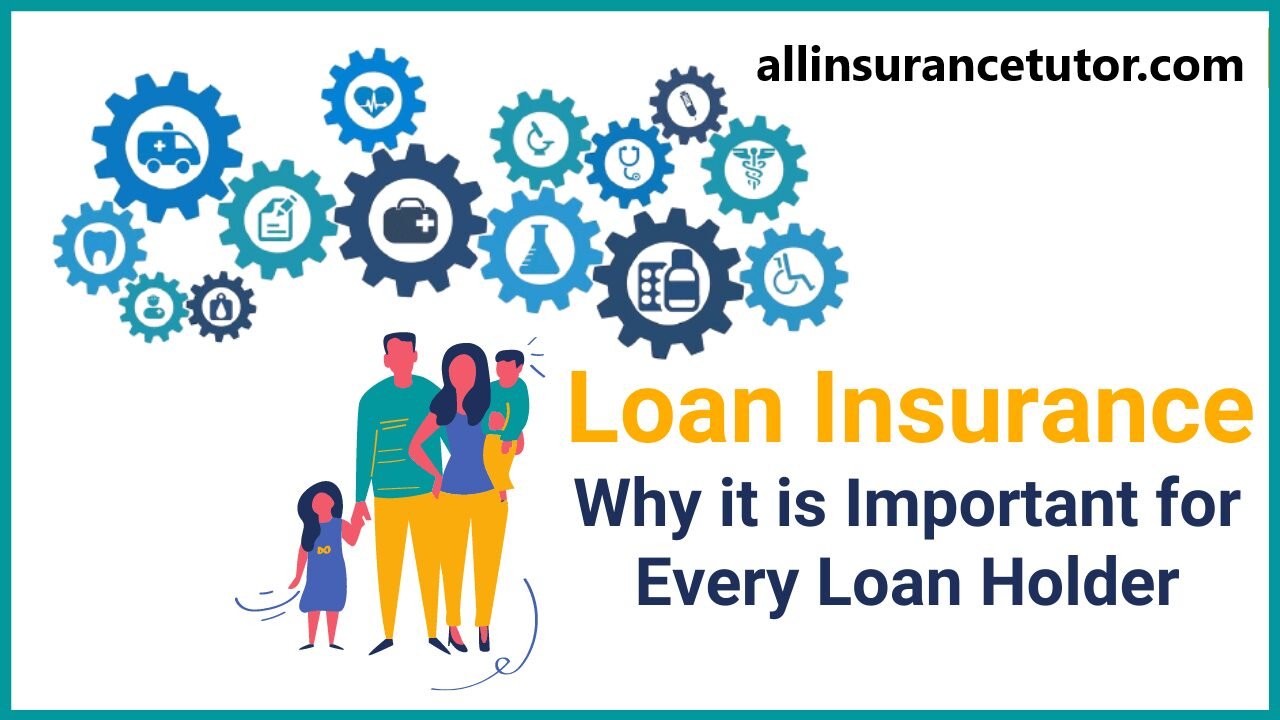
Insurance Loan
In this article, we’ll discuss what an insurance loan is, how much money you can borrow from your life insurance policy, and everything else you need to know about insurance loan USA.
When it comes to financial planning, insurance is a crucial aspect that cannot be ignored. It offers protection against unforeseen circumstances and helps you secure your future. However, insurance policies have a number of features, and one of them is life loan insurance.

What Is Loan Insurance?
Loan insurance is a type of loan that you can take out against the cash value of your life insurance policy. If you have a permanent life insurance policy, such as a full or universal life insurance policy, it will increase in cash value over time. This cash amount can be borrowed to provide you with a loan. The loan amount is usually limited to a certain percentage of the cash value of the policy, which varies depending on the insurer and the terms of the policy.
How Much Money Can I Borrow From My Life Insurance Policy?
The amount of money you can borrow from your life insurance policy depends on several factors, including the cash value of the policy, the type of policy you have, and the insurance company’s policies. In general, you can borrow up to 90% of the cash value of your policy. However, it is important to note that the loan amount and interest rate may vary depending on your insurer and policy.
What is a Life Insurance Loan?
Life loan insurance is a loan that you take out against the cash value of your life insurance policy. Unlike other loans, you don’t have to go through a credit check or provide collateral to get life loan insurance. Because you take out the cash value of your own policy, the loan amount and interest are generally lower than other types of loans.
Can You Pay Out Life Insurance Policies For Death?
Yes, you can have your life insurance policy paid out before death. However, there are two ways to do this: get out of the policy or take out a life insurance policy. If you surrender the policy, you will cancel it and receive the cash value of the policy. This may result in a taxable benefit, depending on the terms of the policy. On the other hand, taking out a life loan insurance means that you borrow against the cash value of the policy and you have to pay back the loan amount with interest.
Life Insurance Calculator
If you are considering taking out life loan insurance, you can use a life insurance loan calculator. With this tool, you can estimate how much money you can borrow based on your policy and the interest you have to pay. It’s important to note that the loan amount and interest rate can vary depending on the insurer and policy, so the calculator’s results may not be accurate.
Do I Have To Pay My Life Insurance Loan?
If you have a life insurance policy, you may wonder whether you should pay it off or not. The answer depends on several factors, including your financial situation, the interest rate on the loan, and your insurance company’s policy. In general, it’s a good idea to do this if you can pay off the loan without negatively impacting your financial situation. However, if paying off the loan causes financial problems, you may want to keep making your loan payments until you are in a better financial position.
Who Gets The Interest On A Life Insurance Loan?
When you take out life loan insurance, the interest on the loan is usually paid to the insurance company. However, it is important to note that the interest rate may vary depending on your insurer and policy. In some cases, interest may be added to the cash value of the policy, which may accrue over time. This can be useful if you plan to keep your policy in place for the long term.
Loans for Life Insurance
Whole life insurance is a type of permanent life insurance policy that builds cash value over time. Loan rates for life insurance are generally lower than other types of loans, such as personal loans or credit cards. The interest rate for a whole life loan insurance is normally fixed, meaning it will not change over the life of the loan. However, it is important to note that the loan amount and interest rate may vary depending on your insurer and policy.
What Happens If You Default On A Life Insurance Loan?
If you default on a life insurance loan, the loan amount and interest are deducted from the cash value of the policy. If the loan and interest exceed the cash value of the policy, the policy may expire or be terminated. This means you could lose your life insurance coverage and any beneficiaries listed on the policy may not receive a death benefit. Even if the loan and interest are not paid before the death of the policyholder, the loan amount and interest will be deducted from the death benefit.
Loan Interest Rate Policy
The interest on the policy loan is the interest you must pay on your life loan insurance. The interest rate can vary depending on your insurer and policy but is generally lower than other types of loans, such as personal loans or credit cards. The interest rate of the policy loan is usually fixed, meaning it will not change during the life of the loan. It is important to note that if you fail to pay the loan and interest, the loan amount and interest will be deducted from the cash value of the policy and this could affect your life insurance policy.
Conclusion
Basically, an insurance loan is a loan that you can take out against the cash value of your life insurance policy. You can borrow up to 90% of the cash value of the policy and the loan amount and interest rate may vary depending on your insurer and policy. If you are considering taking out a life insurance loan, it is important to use a life insurance loan calculator to estimate your loan amount and interest rate. If you are unable to repay the loan and interest, it could also negatively impact your life insurance coverage. That is why it is important to think carefully about your financial situation before taking out a life insurance loan.






